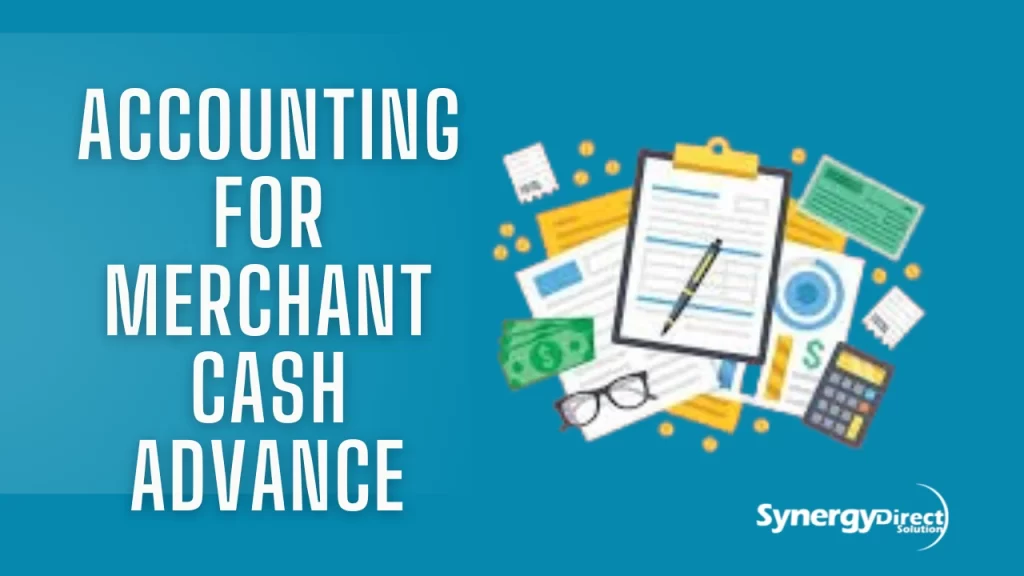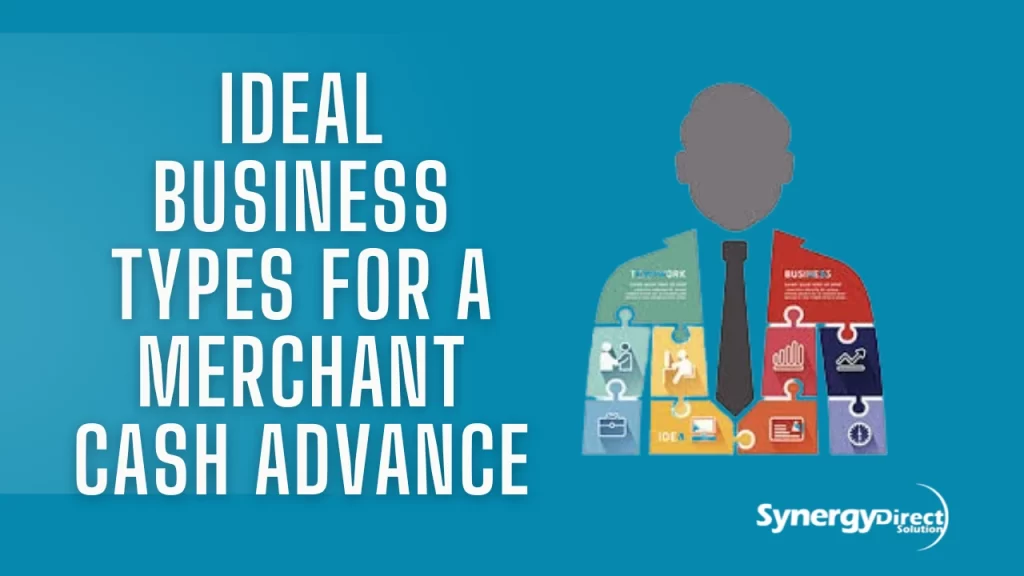Accounting for Merchant Cash Advance
Merchant Cash Advances (MCAs) have become a common alternative financing method for small to medium-sized businesses, particularly in retail, food service, and eCommerce industries. Unlike traditional loans, a merchant cash advance is not technically a loan it’s an advance based on expected future revenue. This distinction affects how it’s treated in accounting.
The primary goal of this article is to provide business owners, accountants, and finance managers with a comprehensive understanding of Accounting for Merchant Cash Advance, covering the initial recognition, repayment tracking, expense categorization, and financial reporting implications. We’ll also explain the journal entries involved and how to manage these advances properly on financial statements.

When are merchant cash advances typically used?
Merchant cash advances are typically used by businesses that need quick access to capital but may not qualify for traditional bank loans due to limited credit history, inconsistent cash flow, or lack of collateral. These advances are especially popular among small businesses in industries with daily sales transactions, such as restaurants, retail stores, and eCommerce operations.
Business owners often turn to merchant cash advances to cover short-term needs like purchasing inventory, handling payroll, paying rent, or managing unexpected expenses. Because the approval process is fast—often within 24 to 48 hours—and repayment is based on a percentage of future sales, MCAs offer flexibility for businesses with fluctuating revenue. However, due to their high cost and short repayment periods, they are generally considered a last resort for businesses seeking immediate funding.
What happens if you don't pay back a merchant cash advance?
If you don’t pay back a merchant cash advance (MCA), the consequences can be severe and escalate quickly, often more aggressively than with traditional loans. Since MCAs are based on a legal contract rather than standard lending laws, many include strict repayment clauses and personal guarantees.
Here’s what typically happens:
- Daily Withdrawals Continue: The provider will keep attempting to collect payments from your daily sales or bank account. If your account has insufficient funds, this can lead to overdraft fees and account freezes.
- Increased Fees and Penalties: Defaulting may trigger penalty fees, late charges, and higher repayment terms. Some contracts also include “confession of judgment” clauses, which allow the lender to obtain a court judgment without a trial.
- Legal Action and Collections: If repayment stops, the MCA provider may sue your business or even you personally (if you signed a personal guarantee). They could place liens on your assets or garnish business income.
- Credit Damage: While most MCAs don’t report to major credit bureaus, defaulting can still affect your business credit if the lender uses third-party collectors or files a lawsuit.
- Cash Flow Crisis: Since repayments are tied to sales, missing payments often indicate cash flow problems. Continued attempts to collect can worsen your financial situation, leading to potential insolvency.
What type of business is a merchant cash suitable for?
A merchant cash advance (MCA) is most suitable for small to medium-sized businesses that generate consistent daily or weekly sales, especially those in industries with high volumes of credit or debit card transactions. These businesses often experience seasonal fluctuations, unpredictable cash flow, or limited access to traditional financing, making MCAs an appealing short-term funding option despite their higher cost.

Ideal business types for a merchant cash advance include:
- Retail Stores: Clothing shops, convenience stores, and specialty retailers with steady foot traffic often use MCAs to restock inventory or upgrade equipment.
- Restaurants and Cafés: These businesses frequently need capital to cover payroll, buy ingredients, or expand seating capacity. Their regular card-based sales make them a good fit for MCA repayment models.
- Salons and Spas: With daily bookings and customer transactions, salons can use MCAs for purchasing supplies, hiring staff, or remodeling.
- Auto Repair Shops: These businesses benefit from quick funding for tools, parts, or shop expansion, especially when faced with sudden repair demand.
- E-commerce Businesses: Online stores with strong sales but limited collateral may find MCAs suitable for marketing campaigns or bulk inventory purchases.
- Hospitality Businesses: Motels, inns, and travel services often experience seasonal revenue spikes and may use MCAs to bridge gaps during slow periods.
How to Record a Merchant Cash Advance on Financial Statements?
Recording a merchant cash advance (MCA) on financial statements requires careful accounting to accurately reflect the business’s financial obligations. When a business receives an MCA, the funds should be recorded as a short-term liability rather than income, as it represents an advance against future receivables.
The initial journal entry typically debits the cash account and credits a liability account, such as “Merchant Cash Advance Payable.” The total repayment amount, which includes the original advance plus any fees or factor rate charges, should be disclosed clearly in financial reports. As repayments are made—usually through daily or weekly deductions from sales—the liability is gradually reduced.
The cost of the advance (the difference between the amount received and the total repayment) should be recorded as an expense over the repayment period. Proper classification ensures the business doesn’t overstate revenue or understate liabilities, helping stakeholders understand the true financial health of the company. Accurate MCA accounting also supports compliance with financial reporting standards and helps in future borrowing assessments.
How to apply for a merchant cash advance?
To apply for a merchant cash advance, a business owner must first assess their funding needs and ensure their business generates regular credit or debit card sales, as MCAs are repaid through a portion of daily transactions. The next step is to research and compare reputable MCA providers, paying close attention to factor rates, fees, and repayment terms.
Once a provider is chosen, the business must gather and submit required documents—typically including recent bank statements, credit card processing records, a valid ID, and proof of business operation. Most applications are completed online and require minimal paperwork, with decisions often made within 24 to 48 hours.
If approved, the funds are usually deposited into the business’s bank account within a few days, and repayments begin automatically through a percentage of daily sales or fixed withdrawals. This streamlined process makes MCAs a convenient option for businesses in need of fast, short-term capital.
How do you qualify for a merchant cash advance?
To qualify for a Merchant Cash Advance (MCA), your business typically needs to meet a few basic criteria, which are less strict than traditional loans. Here’s a breakdown of the common requirements:
1. Consistent Business Revenue
MCA providers look for businesses with steady daily or monthly credit/debit card sales or overall revenue. Most lenders prefer a minimum monthly revenue of $5,000 to $10,000.
2. Time in Business
Most MCA companies require your business to be operating for at least 3 to 6 months, though some may prefer a longer track record like 1 year for better terms.
3. Business Bank Account
You’ll need an active business bank account, as this is where lenders review cash flow and where repayments will be automatically withdrawn.
4. Low Number of Negative Bank Days
Having few or no overdrafts or NSF (Non-Sufficient Funds) events in your recent bank statements (typically 3 to 6 months) improves your chances of approval.
5. Credit Score (Less Important)
MCAs are not credit-score-dependent like traditional loans. Many providers accept applicants with scores as low as 500, but stronger scores may secure better rates.
6. U.S. Citizenship or Valid Business Entity
Your business must be legally registered and operating within the United States. Some lenders also require a valid Tax ID or EIN.
Merchant Cash Advance Books
Merchant Cash Advance (MCA) books serve as valuable resources for entrepreneurs, lenders, and financial professionals seeking to understand the inner workings of the MCA industry. These books cover a range of topics including underwriting, risk management, legal compliance, sales strategies, and portfolio management.
Whether you’re a newcomer exploring alternative lending or a seasoned investor looking to optimize your MCA business, the right book can offer crucial insights into best practices and evolving trends. Some MCA books focus on building a successful funding company, while others dive into the technical aspects like calculating payback amounts, factoring rates, and navigating state regulations.
With the MCA market becoming increasingly competitive and complex, reading well-regarded industry books is a strategic step toward informed decision-making and long-term success.

Conclusion
In today’s fast-paced financial landscape, understanding merchant cash advances is essential for business owners and financial professionals seeking flexible, alternative funding options. From learning how to properly record MCAs on financial statements to navigating the application and qualification process, each step requires informed decision-making to avoid financial pitfalls. Additionally, leveraging merchant cash advance books can deepen one’s expertise in areas like risk assessment, legal compliance, and funding strategies—offering practical guidance for both borrowers and MCA providers. As the industry continues to grow and evolve, staying educated and financially disciplined remains key to maximizing the benefits of merchant cash advances while minimizing risks. success.
FAQS
- How do you record a cash advance in accounting?
A cash advance is recorded by debiting the cash account and crediting a liability account, such as “Cash Advance Payable” or “Merchant Cash Advance Payable.” - What is a merchant cash advance?
A merchant cash advance (MCA) is a lump sum of capital given to a business in exchange for a percentage of future credit card or daily sales, typically used as short-term funding. - What is the entry for cash in advance?
The journal entry is:
Debit: Cash
Credit: Unearned Revenue or Liability (if it’s a customer advance) or Cash Advance Payable (if it’s a loan or MCA). - Do merchant cash advances report to credit?
Most merchant cash advances do not report to major credit bureaus unless there’s a default and the account is sent to collections or legal action is taken.
